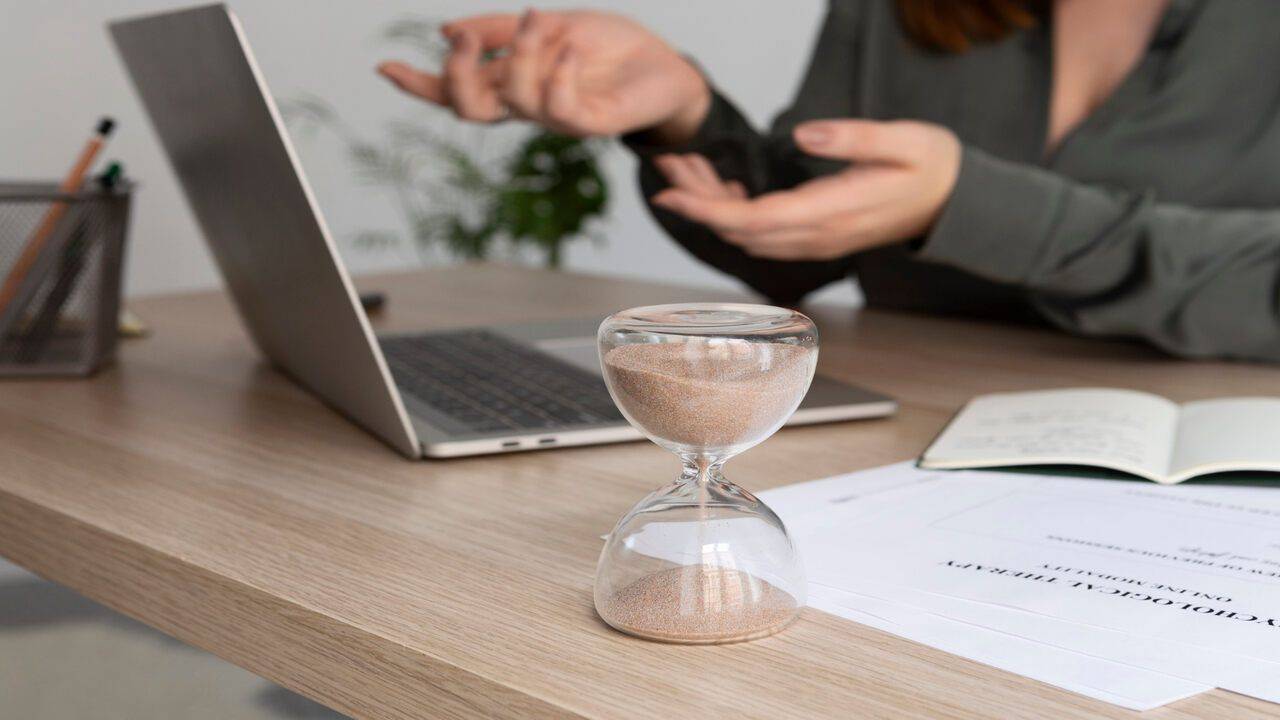The Hidden Cost of Saying “I Don’t Have Time”
Oct 27, 2025
If there’s one phrase I hear more than anything else, it’s this: “I don’t have time.”
It shows up everywhere—when it comes to eating healthier, exercising, journaling, or simply slowing down to breathe. It feels like a fact, like something you can’t argue with. After all, who isn’t busy?
But let’s look deeper. Because “I don’t have time” is rarely about time. It’s about something else entirely.
The Real Reason We Say It
When you say “I don’t have time,” what you usually mean is one of three things:
- It’s not a priority right now.
You’d love to fit it in, but something else feels more urgent. - You’re overwhelmed.
When your day already feels packed, the thought of adding one more thing feels impossible. - You don’t see the immediate benefit.
If the results won’t show up right away, your brain resists putting in the effort today.
The truth is, we always make time for what’s important. If your phone broke right now, you’d find the time to replace it. If your child or parent needed you, you’d clear your schedule in a heartbeat.
That’s because time isn’t about hours. It’s about choices.
Why “I Don’t Have Time” Is an Illusion
Every single one of us gets the same 24 hours a day. Yet some people use those hours to move closer to their goals, while others feel stuck in the same patterns year after year.
The difference? It isn’t discipline. It isn’t luck. It’s how they choose to spend their time.
Think about this:
- How often have you said you didn’t have time to exercise, but still managed to scroll through social media for 20 minutes?
- How often have you said you didn’t have time to cook, but fit in a Netflix episode without thinking twice?
This isn’t about guilt—it’s about awareness. “I don’t have time” convinces us we’re powerless. But when we see that it’s really about priorities, we take our power back.
A Mindset Shift That Changes Everything
Here’s a challenge: the next time you catch yourself saying, “I don’t have time,” replace it with, “It’s not a priority.”
- “I don’t have time to exercise” → “Exercising isn’t my priority.”
- “I don’t have time to plan my meals” → “Planning meals isn’t my priority.”
- “I don’t have time to rest” → “Taking care of myself isn’t my priority.”
Yes—it stings. But that sting is clarity. And clarity gives you power.
When you see that you’re choosing not to prioritize something, you can decide: Do I want to keep it this way, or do I want to shift my priorities?
How to Create Time When You Feel Like You Don’t Have Any
You don’t need to overhaul your schedule. You just need small, intentional shifts. Here are three ways to start:
Audit Your Time
Spend one day tracking how you use your hours. Where are the leaks? Where could you reclaim 10 or 15 minutes? You’ll be surprised at what you find.
Shrink the Task
You don’t need an hour to make progress. Don’t have time for a 60-minute workout? Do 10 minutes. Don’t have time to journal a page? Write one sentence. Consistency beats perfection.
Schedule Your Priorities
If it’s not on your calendar, it’s too easy to push aside. Block time—even 15 minutes—for the things that truly matter. Protect that space like you would a doctor’s appointment.
The Ripple Effect of Changing Your Language
When you stop saying “I don’t have time” and start asking, “What are my true priorities?”—your entire perspective shifts.
You stop fighting the clock and start owning your choices.
You stop feeling powerless and start feeling intentional.
And little by little, you stop living on autopilot and start creating the life you actually want.
Final Thought
The next time you’re about to say “I don’t have time,” pause. Ask yourself: is this really about time—or is it about priorities?
Time is not something we “find.” It’s something we create. And you get to decide how to create it.
So what will you prioritize today?
Learn more about personalized coaching and schedule a complimentary consultation today.
